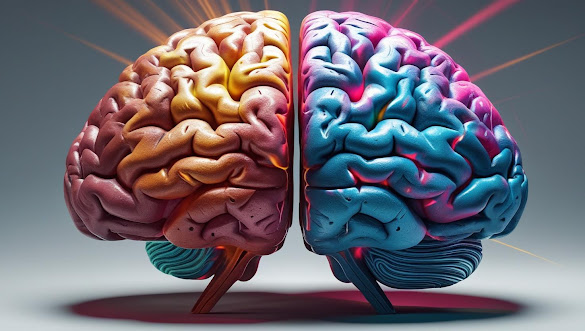Diagnosing the Invisible: What Are the Current Challenges in Mental Health Disorder Diagnosis?
🧠 Diagnosing the Invisible:
What Are the Current Challenges in Mental Health Disorder Diagnosis?
By Zehra Imran
Image credit: Unsplash
🌀 Mental Health Is Complex — So Why Do We Still Use One-Size-Fits-All Diagnoses?
Imagine going to a doctor for chest pain and getting diagnosed with “chronic sadness syndrome.”
That sounds absurd, right?
But when it comes to mental health disorders, we’re often working with vague clusters of symptoms, overlapping diagnostic criteria, and limited tools. In 2025, despite AI, brain scans, and decades of research, mental health diagnosis is still more art than science.
So what’s really going on? And what are the biggest challenges we still face in getting mental health diagnoses right?
🧩 1. The Symptom Overlap Problem
Depression, anxiety, PTSD, ADHD, and bipolar disorder can all present with sleep issues, fatigue, poor concentration, and irritability.
“Mental health diagnoses aren’t like blood tests—they’re interpretive,” says Dr. Lisa Harding, a Yale-trained psychiatrist. “That overlap makes accuracy a moving target.”
Even the DSM-5-TR, our main diagnostic manual, is more a consensus document than a biological map. That’s a major issue in both over- and under-diagnosis.
📚 Source:
➡️ National Library of Medicine (2024): Symptom Overlap and Misdiagnosis
🧠 2. No Reliable Biomarkers… Yet
Unlike diabetes (blood sugar) or cancer (tumor markers), mental disorders lack reliable biological tests.
Sure, some researchers are exploring brain scans, cortisol levels, or even gut microbiomes—but no test has reached clinical gold-standard status.
🎥 Watch: Why Mental Illness Has No Single Test | Big Think
The brain remains a black box, and we’re still guessing based on symptoms—which can be misleading, especially in early stages.
⚖️ 3. Diagnostic Bias and Cultural Blind Spots
Did you know that Black Americans are 3–4 times more likely to be misdiagnosed with schizophrenia compared to white Americans with the same symptoms?
Or that South Asian cultures often express mental distress through physical symptoms, which Western models may overlook?
“Mental health diagnosis is shaped by cultural context, systemic bias, and language barriers,” explains Dr. Monnica Williams, a clinical psychologist at the University of Ottawa.
📚 Source:
➡️ American Psychological Association: Mental Health Disparities (2023)
⏱️ 4. Time Pressure in Clinical Settings
Primary care doctors—who diagnose the majority of mental health disorders—often have just 10–15 minutes per patient.
That’s not enough to understand complex emotional patterns, trauma history, or neurological overlap.
In many cases, diagnoses are made quickly and medications prescribed without adequate evaluation, leading to incorrect treatment paths.
🎥 Watch: How Doctors Diagnose Mental Illness in 15 Minutes (VICE Docs)
🧍♀️ 5. Stigma—Even in the Diagnosis Room
Stigma isn't just in the media—it’s in the doctor’s office, too.
Some people underreport symptoms out of shame. Others fear being labeled and losing job opportunities or social credibility. Many men, for instance, avoid discussing anxiety or sadness because they see it as a “weakness.”
This leads to underdiagnosis and untreated suffering, especially in marginalized populations.
💡 6. AI and Tech Are Promising—But Not a Cure-All
AI is starting to detect patterns in speech, facial expressions, or even keystrokes that could hint at depression or psychosis. But even here, the tools face challenges around:
-
🔹 Bias in training data
-
🔹 Privacy concerns
-
🔹 Overdependence on tech
-
🔹 False positives or negatives
📚 Source:
➡️ Nature Digital Medicine (2024): Can AI Detect Mental Illness Accurately?
🎥 Watch: AI & Depression – Could Algorithms Replace Therapists?
🔄 So, What’s the Way Forward?
Despite the limitations, we’re making progress:
✅ More culturally sensitive diagnostic tools
✅ Increased training for GPs on mental health
✅ Integration of functional MRI, wearable tech, and genetic studies
✅ Greater public awareness about seeking help early
Mental health diagnosis is slowly shifting from judgment to understanding, from checkboxes to nuance, and from symptoms to systems.
📌 Final Thoughts: Diagnosis Is a Starting Point, Not a Sentence
A diagnosis doesn’t define you. It’s a map, not a prison.
We need to treat mental health diagnosis as an evolving dialogue—between patient and provider, science and humanity, symptoms and story.
“Getting the name right matters—but getting the person right matters more.”
✅ Tags:
#MentalHealth #Diagnosis #Neuroscience #Psychology #Anxiety #Depression #Stigma #Psychiatry #MentalHealthAwareness #BrainHealth
🔗 Useful Internal & External Links:











Comments
Post a Comment